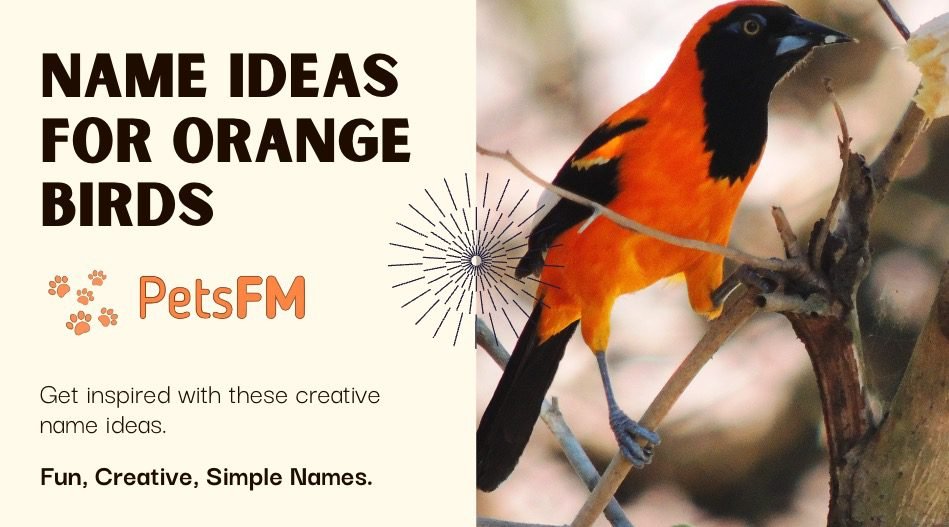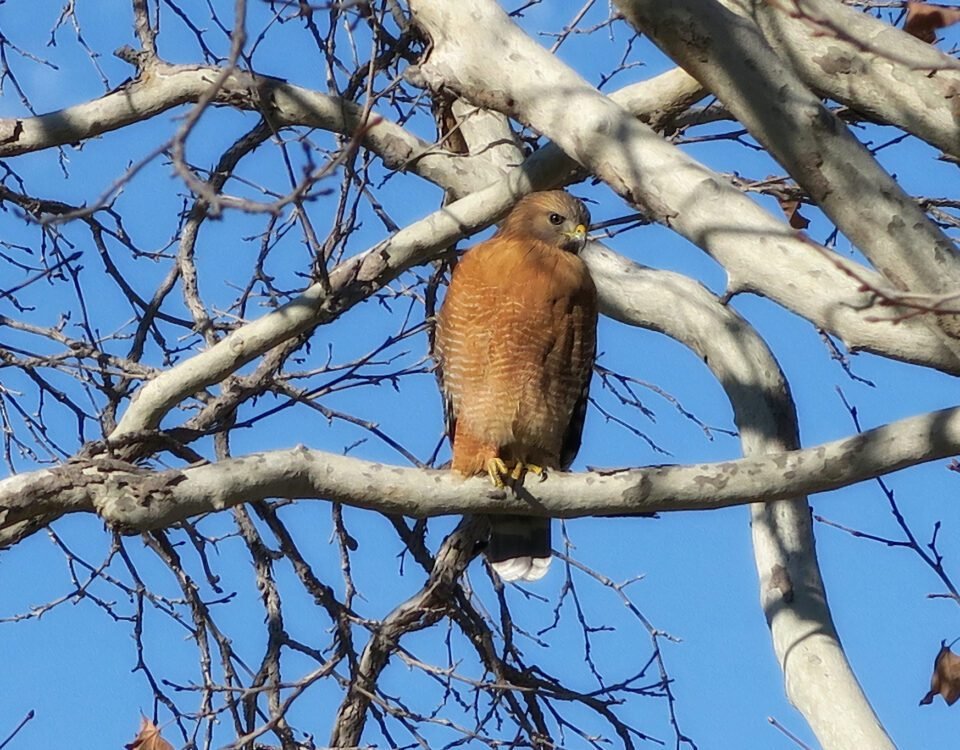


Why Won’t My Bird Stop Screaming? Identifying Reasons
September 29, 2023


Are Birds Omnivores? A Look at Different Species
September 29, 2023Yes, birds can eat walnuts. Despite the walnut’s tough exterior, many birds have beaks powerful enough to pierce through and reach the nutrient-rich core. After eating the nut, they usually leave the shell behind. However, ensuring they’re free of salt and other coatings is vital.
This article will investigate bird diets to determine whether birds can eat walnuts without harm.
Similar Read: Why Won’t My Bird Stop Screaming? Identifying Reasons
The Nutritional Content Of Walnuts
Before we explore whether birds can consume walnuts, let’s look at what makes walnuts nutritionally.


- The walnut is found in one of the hardest shells among the shelled nuts family and usually has an excellent hardness characteristic of 3.5 MOH and 91 Rockwell.
- On the other hand, the nut is a good source of dietary supplements, as it is packed with nutrients, including helpful fats, protein, dietary fiber, and various vitamins and minerals.
- Specifically, walnuts contain significant omega-3 fatty acids, known for their positive effects on health.
However, it’s essential to recognize that birds have distinct dietary requirements that diverge significantly from those of humans.
Can Birds Eat Walnuts? Is It safe?
It’s safe to say that birds can consume walnuts if offered the inner meat, free from its hard shell and without additives. Walnuts, akin to other nuts, provide a rich protein source for birds that partake in seeds and kernels. The consistency of the walnut meat is soft, making it appealing to wild birds, yet it can be effortlessly broken down.
With their rich nutritional profile, walnuts offer a beneficial treat for many bird species. Birds like parrots and crows, equipped with strong beaks, can crack open even the tough walnut shell to access the inner meat. However, when offering these nuts to our feathered friends, it is imperative to ensure they’re in their most natural state. Added salts, coatings, or other chemicals commonly found in human snacks can harm birds.
It’s also worth noting that while walnuts can serve as a wholesome treat, they shouldn’t replace a bird’s primary diet. As with all treats, moderation is key. The best approach is to sprinkle them in occasionally, ensuring a varied and balanced diet for the bird.
Also, know if birds can drink milk.
Common Bird Species That Enjoy Walnuts
Several bird species are known to eat walnuts, for example:
- Parrots: Vibrantly colored and often talkative birds known for their strong beaks, which can easily crack open hard-shelled nuts like walnuts. They enjoy a varied diet, which includes fruits, seeds, and nuts.
- Crows: Highly intelligent and adaptable birds found in various habitats. With strong beaks and a love for varied foods, they often consume nuts, including walnuts, when available.
- Jays (e.g., Blue Jays): Recognizable by their striking colors and crested heads, they have a penchant for collecting and storing food, including hard-shelled nuts. Walnuts are among the nuts they’re known to cache.
- Woodpeckers: Birds known for pecking at tree bark to find insects. They have sturdy beaks capable of drilling into wood and cracking open nuts. Some species, like the Red-bellied Woodpecker, will eat nuts and seeds as part of their diet.
- Magpies: Part of the crow family, these are curious birds with black and white plumage. They have a varied diet, which often includes nuts like walnuts.
- Nuthatches: Small, agile birds with a unique habit of descending tree trunks head-first. They stash away nuts, including walnuts, in tree crevices for later consumption. Their strong beaks allow them to break into hard-shelled nuts with ease.
Must Read: Why Do Birds Eat Their Babies? Reasons Why!
Nutritional Benefits of Walnuts in Bird’s Diet
Walnuts can provide several potential benefits for birds.
- Feather Health: Their healthy fats offer a valuable energy source, particularly during colder months and migration periods. The omega-3 fatty acids in walnuts contribute to improved feather health, immune system function, and overall vitality in birds.
- Tissue Repair: Additionally, walnuts contain protein for growth and tissue repair, vitamin E for immune support and cell protection, and a small amount of calcium for bone development and eggshell formation.
- Active Behavior: By offering walnuts as part of a varied diet, birds can enjoy the stimulation of natural foraging behaviors, while backyard enthusiasts can attract diverse bird species to their gardens.
Also Read: Learn If Your Birds Can Eat Lettuce: Latest Guide
How To Offer Walnuts To Birds?
To offer walnuts to your feathered friends, you must ensure safety to prevent adverse outcomes. The following are a few factors and tips to consider when providing walnuts to the birds:
1: Size and Form
Consider the nuts’ size and form when providing walnuts to your feathered friends. Whole walnuts can be large and may challenge smaller bird species. Therefore, breaking or crushing the walnuts into smaller, more manageable pieces is advisable.


Walnut Size and Form
By doing so, a broader spectrum of birds will have the opportunity to relish these nutritious treats. Providing a few walnuts as an occasional treat for larger birds like Blue Jays is fine. Smaller birds might prefer smaller portions, like titmice or sparrows.
2: Moderation
While walnuts offer nutritional benefits, they should be provided in moderation. Offering an excessive amount of walnuts can disrupt the dietary balance of birds. As a result, it’s a good idea to provide walnuts as an occasional treat rather than the bird’s primary food source.
This approach ensures that birds maintain a balanced diet that caters to their various nutritional requirements. Larger bird species like Parrots can enjoy a few walnuts as an occasional treat without issue.


A Parrot Eating Chilli
Conversely, smaller birds like Sparrows or Chickadees should be given smaller servings to suit their needs and capabilities.
3: Freshness
When it comes to feeding birds walnuts, freshness is super important. Just like humans, birds should only have fresh walnuts. Old or moldy walnuts can make birds sick. Moldy walnuts have molds that can give birds fungal infections like aspergillosis. So, make sure the walnuts you give to birds are fresh and not old or moldy.
By giving fresh walnuts, you can keep the birds at your feeding stations healthy and enjoy watching them enjoy this tasty and healthy snack. All birds benefit from fresh walnuts, but this is especially crucial for birds like Northern Mockingbirds, which are known to be sensitive to food quality.
4: Avoid seasoned and salted walnuts
Birds, like many animals, are sensitive to salt. Salt intake can lead to health issues such as dehydration and kidney problems.
Seasoned or salted walnuts contain high salt levels, which can harm birds. It is, therefore, recommended to avoid walnuts with salty layers.
Must Read: Why Won’t My Bird Stop Screaming? Identifying Reasons
5: Remove the Shell
Before offering walnuts to birds, it’s essential to remove the shell. The hardcover can present challenges for birds, potentially leading to injuries to their beaks.


Shelled Walnuts
Providing shelled walnuts allows birds to access the nutritious nutmeat without any risk of harm.
6: Portion
Birds can safely eat walnuts if they do not exceed 20 percent of their daily dietary intake.
Recommended Read: Why Do Birds Get Aggressive? What You Need to Know?
Are There Any Side Effects To Birds Eating Walnuts?
Feeding birds with walnuts also carries potential hazards, given that not all bird species can endure or safely ingest them. Certain species may exhibit allergies or intolerances towards walnuts, predisposing them to digestive complications, blockages, and diminished appetite.


Side Effects of Birds Eating Walnuts
Furthermore, the elevated fat content in walnuts can have adverse consequences on a bird diet, possibly leading to obesity and related health issues.
Hence, conducting a species-specific evaluation to verify the suitability of walnuts for bird consumption is crucial. While walnuts offer nutritional value to humans as a snack, it is vital to acknowledge that not all bird species will derive equivalent advantages from them.
Conclusion
In summary, birds can safely eat walnuts, providing them with many nutritional benefits. Yet, offering them unseasoned, shell-free walnuts in measured amounts is crucial.
It’s essential to note that walnuts should complement a bird’s primary diet of seeds, grains, and fruits rather than dominate it. Adhering to these recommendations ensures a delightful and nutritious feeding experience for the feathered guests in your garden.



